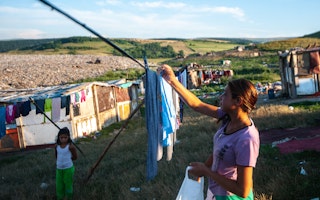The EU Should Distance Itself from Anti-Roma Moves
By Valeriu Nicolae
The following originally appeared in European Voice.
EuropeanVoice.com reported on September 4 on the European Commission’s acceptance of the fingerprinting of Roma in Italy [“Commission accepts Roma fingerprinting”], stating that the move amounted to vindication of the Italian government’s controversial measures.
What the Commission’s decision essentially does is to legitimize Prime Minister Silvio Berlusconi’s ongoing campaign to suppress the Roma and to offer another unfortunate example of the EU’s continuing marginalization of Europe’s largest minority.
On September 16 the European Union has a chance to right its wrongs at the EU Roma Summit. Jointly convened by the French presidency of the European Council and the European Commission, the summit represents the highest-level meeting to date dealing exclusively with the Roma.
Our hope is that next Tuesday (September 16) the more than 400 participants, including political and civil society leaders from across the EU, will seize this opportunity to map out a way forward for integrating the Roma into the social fabric of the EU.
The EU needs to take the opportunity offered by the summit to signal clearly that social inclusion of the Roma is a central priority at institutional, regional and national levels.
In practical terms, this could be achieved by issuing a strong declaration following the summit that the EU will work with its member and accession countries to map out the next steps in developing a European Roma inclusion policy. This policy should focus on Roma empowerment and address the root causes of the Roma’s current dismal reality, including improving access to education, increasing employment opportunities and providing better housing and health care.
For that, the Roma summit must be more than just another conference, and must lead to more than yet another well-written communiqué.
Until December 2009, Valeriu Nicolae was a senior advocacy officer with the Open Society Foundations.


